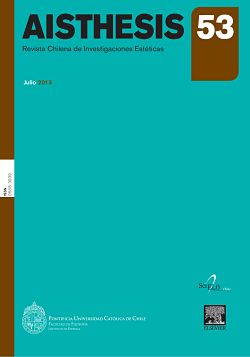The Aesthetic Realism of Documentary Cinema in Pier Paolo Pasolini’s Thesis
Main Article Content
Abstract
Pier Paolo Pasolini’s cinematographic thesis is based on the idea that reality is not natural, but cultural. Thus cinema reveals it, making us aware of the fact that we do not act upon reality but live inside of it, as if reality was a continuous system of signs which we form part of. The revision, in the United States, of the semiotic theory of the Italian director and essayist has returned to the eye of the western movie debates, mainly due to the new readings of the works by Charles Sanders Peirce. The following article claims that the realistic bases of documentary cinema come close to the false naturalism refered by Pasolini by mixing great part of the perceptive processes that nourish the spectator minds.
Downloads
Article Details

This work is licensed under a Creative Commons Attribution-NonCommercial-ShareAlike 4.0 International License.
All contents of this electronic edition are distributed under the Creative Commons license of "Attribución-shareAlike 4.0 Internacional" (CC-BY-SA). Any total or partial reproduction of the material must mention its origin.
The rights of academic works published in this publication belong to their authors., who grant to AISTHESIS: Revista Chilena de Investigaciones Estéticas the license for its use. The management of the permits and the authorization of the publication of the images (or of any material) that contains copyright and its consequent rights of reproduction in this publication is the sole responsibility of the authors of the articles
